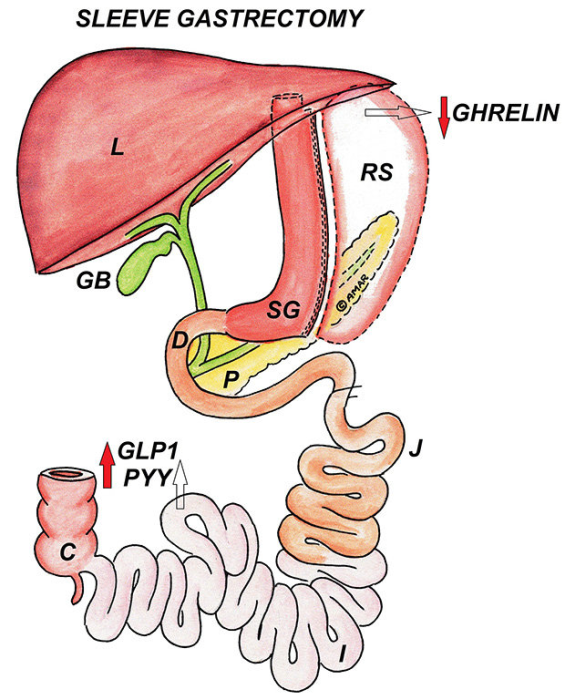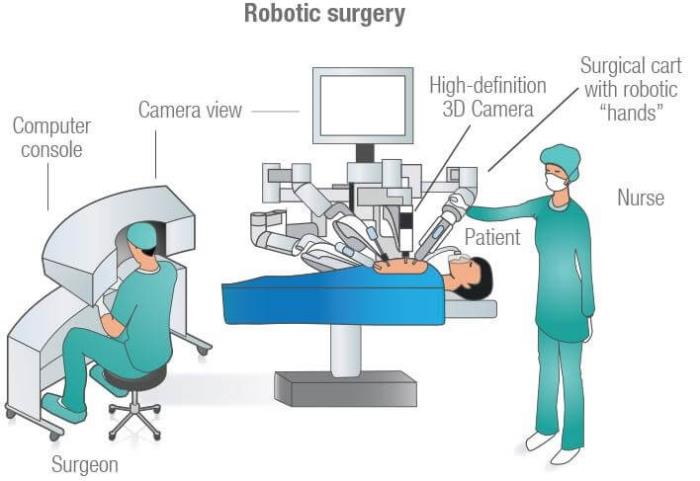Minimally invasive sleeve gastrectomy is a surgical procedure designed to aid in weight loss by reducing the stomach's size. This technique involves small incisions and advanced surgical tools, offering patients a less invasive option with faster recovery times and fewer complications.
What Are Minimally Invasive Surgical Techniques?
Minimally invasive surgical techniques involve using small incisions, specialized instruments, and cameras to perform surgeries with less physical disruption to the body. These methods reduce pain, scarring, and recovery time, making them a popular choice for procedures like sleeve gastrectomy.
Evolution of Laparoscopic Sleeve Gastrectomy
Laparoscopic sleeve gastrectomy has evolved significantly since its inception. Advancements in technology and surgical techniques have made it a safer and more effective procedure, helping patients achieve substantial weight loss with reduced risk and faster recovery.

Benefits of Minimally Invasive Surgery for Sleeve Gastrectomy
Minimally invasive sleeve gastrectomy offers numerous benefits, including reduced post-operative pain, shorter hospital stays, faster recovery, and minimized scarring. These advantages make it a preferred option for patients seeking surgical weight loss solutions.
Robotic-Assisted Sleeve Gastrectomy: An Overview
Robotic-assisted sleeve gastrectomy utilizes robotic technology to enhance the surgeon’s precision during the procedure. This approach allows for more controlled movements and better visualization, potentially reducing the risk of complications and improving patient outcomes.

How Minimally Invasive Techniques Improve Recovery Time
Minimally invasive techniques, such as laparoscopic surgery, involve smaller incisions and less trauma to the body, resulting in faster healing and shorter recovery times. Patients can often return to their normal activities more quickly compared to traditional open surgeries.
Reducing Scarring with Advanced Surgical Approaches
By utilizing techniques like laparoscopy and robotic surgery, surgeons can perform sleeve gastrectomy through small incisions, leading to minimal scarring. These advancements provide cosmetic benefits, along with a lower risk of infection and quicker healing.
Lower Risk of Complications in Minimally Invasive Sleeve Gastrectomy
Minimally invasive sleeve gastrectomy is associated with a lower risk of complications, including infections and bleeding. The reduced physical impact on the body helps improve surgical safety and contributes to better overall outcomes for patients.
Innovations in Surgical Instruments for Sleeve Gastrectomy
Advances in surgical instruments, such as more flexible and precise tools, have improved the efficiency and safety of sleeve gastrectomy procedures. These innovations allow surgeons to perform the operation with greater accuracy and minimal impact on surrounding tissues.
How Surgeons are Improving Precision in Bariatric Surgery
Surgeons are continuously enhancing precision in bariatric surgery through innovations in imaging, robotics, and surgical techniques. These advancements help achieve better patient outcomes by minimizing risks and improving the accuracy of procedures like sleeve gastrectomy.
The Role of Technology in Enhancing Surgical Outcomes
Technology plays a crucial role in improving surgical outcomes by providing surgeons with advanced tools, better imaging, and robotic assistance. These innovations enhance precision, reduce complications, and contribute to faster patient recovery.
Faster Healing and Reduced Pain with Minimally Invasive Methods
Minimally invasive methods, such as laparoscopic and robotic-assisted surgeries, result in less tissue damage, leading to faster healing and reduced pain post-operation. Patients benefit from quicker recoveries and a more comfortable post-operative experience.
How Minimally Invasive Techniques Impact Hospital Stay Duration
Minimally invasive techniques significantly reduce the length of hospital stays compared to traditional open surgeries. Patients undergoing procedures like sleeve gastrectomy can often return home within a day or two, allowing for a faster recovery.
Patient Eligibility for Minimally Invasive Sleeve Gastrectomy
Patients eligible for minimally invasive sleeve gastrectomy typically have a BMI over 35 and have struggled with other weight loss methods. Good overall health and no significant complications make candidates suitable for this less invasive approach.
Comparing Open Surgery and Minimally Invasive Techniques
Minimally invasive techniques offer several advantages over open surgery, including smaller incisions, reduced scarring, quicker recovery, and less post-operative pain. Open surgery, however, may be necessary in more complex cases.
Potential Risks of Minimally Invasive Sleeve Gastrectomy
While minimally invasive sleeve gastrectomy is generally safe, potential risks include infection, bleeding, and leaks from the stomach incision. However, these risks are lower compared to open surgery due to less physical trauma.
Post-Operative Care Following Minimally Invasive Sleeve Gastrectomy
Post-operative care after minimally invasive sleeve gastrectomy involves managing pain, following a specialized diet, and gradually resuming normal activities. Regular follow-up visits ensure proper healing and monitor long-term weight loss success.
Advances in Imaging and Surgical Planning
Innovative imaging technologies such as 3D imaging and virtual surgical planning have revolutionized bariatric surgery. These advancements allow for better visualization, aiding in precise surgical execution and improved patient outcomes.
Long-Term Outcomes of Minimally Invasive Sleeve Gastrectomy
Minimally invasive sleeve gastrectomy offers long-term benefits, including significant and sustained weight loss, improvement in obesity-related health conditions, and a reduced risk of complications compared to open surgery.
The Future of Minimally Invasive Bariatric Surgery
The future of minimally invasive bariatric surgery looks promising, with continued advancements in robotic technology, surgical instruments, and imaging techniques. These innovations will likely further enhance safety, precision, and patient outcomes.
Best Sleeve Gastrectomy Treatment in India
The Best Sleeve Gastrectomy Treatment in India is performed by expert surgeons who utilize advanced techniques to ensure optimal outcomes for patients, offering a personalized treatment plan tailored to individual health needs.
Best Sleeve Gastrectomy Hospitals in India
The Best Sleeve Gastrectomy Hospitals in India are equipped with cutting-edge technology and facilities, providing top-notch care, including pre-surgery consultations, surgical expertise, and post-operative recovery support to ensure a smooth patient journey.
Sleeve Gastrectomy Cost in India
When considering the Sleeve Gastrectomy Cost in India, patients benefit from affordable and transparent pricing at leading hospitals, which offer cost-effective treatment options without compromising the quality of care.
Best Sleeve Gastrectomy Doctors in India
The Best Sleeve Gastrectomy Doctors in India are highly experienced in performing the surgery, utilizing a patient-centric approach that ensures personalized care, precise surgical techniques, and dedicated follow-up care to enhance recovery.
FAQs About Minimally Invasive Sleeve Gastrectomy
What makes sleeve gastrectomy minimally invasive?
Sleeve gastrectomy is considered minimally invasive because it is performed using small incisions and specialized tools like a laparoscope, which reduces tissue damage, speeds up recovery, and minimizes scarring compared to open surgery.
Is robotic-assisted surgery better than traditional laparoscopic methods?
Robotic-assisted surgery enhances precision, offering surgeons better control and flexibility than traditional laparoscopic methods. However, both techniques are effective, and the choice depends on the surgeon's expertise and the patient’s specific case.
How does minimally invasive surgery reduce recovery time?
Minimally invasive surgery reduces recovery time by causing less trauma to surrounding tissues, resulting in smaller wounds, less pain, and a quicker return to normal activities compared to traditional open surgery.
Are there any risks specific to minimally invasive sleeve gastrectomy?
While minimally invasive sleeve gastrectomy is generally safer, risks such as infection, bleeding, and gastric leaks can still occur. However, these risks are usually lower than in open surgeries due to the reduced physical trauma.
Can all patients opt for minimally invasive techniques?
Not all patients are eligible for minimally invasive techniques. Factors such as BMI, previous abdominal surgeries, and overall health condition determine whether a patient can safely undergo a minimally invasive sleeve gastrectomy.